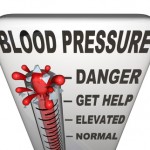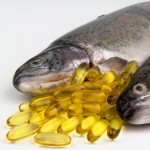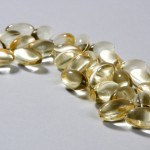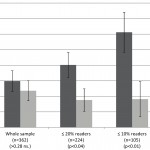When Do Omega-3 Supplements Make Sense?
Author: Dr. Stephen Chaney
 We know that the omega-3 fatty acids found in fish oil are critically important for brain development. But will they really help our kids learn better? Some studies suggest that they do, while other studies have come up empty. Why is this? More importantly, what does it mean for your children? Will fish oil supplements help or not?
We know that the omega-3 fatty acids found in fish oil are critically important for brain development. But will they really help our kids learn better? Some studies suggest that they do, while other studies have come up empty. Why is this? More importantly, what does it mean for your children? Will fish oil supplements help or not?
I’ve selected today’s study (Portillo-Reyes et al, Research in Developmental Disabilities, 35: 861-870, 2014) because it sheds some light on those important questions.
Can Fish Oil Make Children Smarter?
This study looked at the effect of supplementation for 3 months with 360 mg of EPA + DHA on cognitive function of malnourished Mexican children, ages 8-12 years old. The children came from poor neighborhoods where foods rich in omega-3 fatty acids were seldom available. Low intake of omega-3 fatty acids was confirmed by a food frequency survey.
Cognition was assessed based on a battery of 16 standardized cognition tests at the beginning of the study and again 3 months later.
The results were fairly clear cut. The children receiving the fish oil supplements showed significant gains in mental processing speed, visual-motor coordination, perceptual integration, attention span and executive function compared to children receiving a placebo. In case you were wondering, the first three most strongly affect a child’s ability to learn and last two affect their tendency to display ADHD symptoms.
What Is the Significance of This Study?
There are a lot of things not to like about the study:
- It was a small study (59 children total)
- Blood levels of omega-3 fatty acids were not determined.
- It was a short term study (12 months would have been better).
- Measuring the ability to learn is difficult. Experts in the field differ about which cognitive tests are best. I’m not taking a position on the adequacy of the tests they were using because that is not my area of expertise.
- Because it was done in a poor region of Mexico, one could argue that its applicability to children in this country is uncertain.
So why even mention this study? That’s because it illustrates an important principle – one that is often ignored in the design and interpretation of clinical studies.
Simply put, the principle is that not everyone will benefit equally from supplementation. It is the malnourished and the sick who will benefit most. When you focus your clinical studies on those groups you are most likely to observe a benefit of supplementation. When you focus your study on well nourished, healthy individuals it will be much more difficult to observe any benefit. And if you perform a meta-analysis of all studies, without evaluating the studies on the basis of need – nutrition status and health status – benefits will also be much more difficult to demonstrate.
This study is just one example of that principle. In an earlier “Health Tips From the Professor” (Can DHA Help Johnny Read?) I reported on a study looking at the effect of DHA supplementation on reading ability of English schoolchildren. In that study, it was the children who were most deficient in DHA and started with the lowest reading skills who benefitted most from DHA supplementation.
What does all of this mean to you?
- If you are a parent, you may be asking if a study done with Mexican children eating poor diets has any relevance for your kids. In today’s world of pop tarts and pizza it just might. Most children don’t order sardines on their pizza. As a consequence, many American children don’t get enough omega-3 fatty acids in their diet.
- Should your children be getting more omega-3s in their diet? A recent study concluded that most American children only get 20-40 mg/day of DHA from their diet. So if your child’s food preferences don’t include salmon, sardines and the like – and if your child is experiencing learning issues or problems with ADHD, you might consider adding fish oil supplements to their diet. There’s no need to megadose. The international standard is around 200 mg/day of DHA for children 7 or older.
- If you are one of those people who is confused by conflicting headlines about the benefits of supplementation, you may want to look at the studies behind those headlines and ask if supplementation would have been likely to provide any benefit in the subjects studied.
The Bottom Line:
1) A recent study reported that supplementation with fish oil significantly improved learning skills in children consuming a diet that was deficient in omega-3 fatty acids.
2) If your children are not consuming foods rich in omega-3 fatty acids such as coldwater fish, you might wish to make sure that they are getting adequate levels of omega-3 fatty acids in their diet. Most experts recommend around 200 mg/day for children over 7.
3) This study also illustrates the principle that supplementation is most likely to be of demonstrable benefit to those who have the worst diets and the greatest need. That doesn’t mean that supplementation won’t benefit everyone, but it does mean that it may be difficult to prove the value of supplementation in healthy people consuming a good diet.
These statements have not been evaluated by the Food and Drug Administration. This information is not intended to diagnose, treat, cure or prevent any disease.













